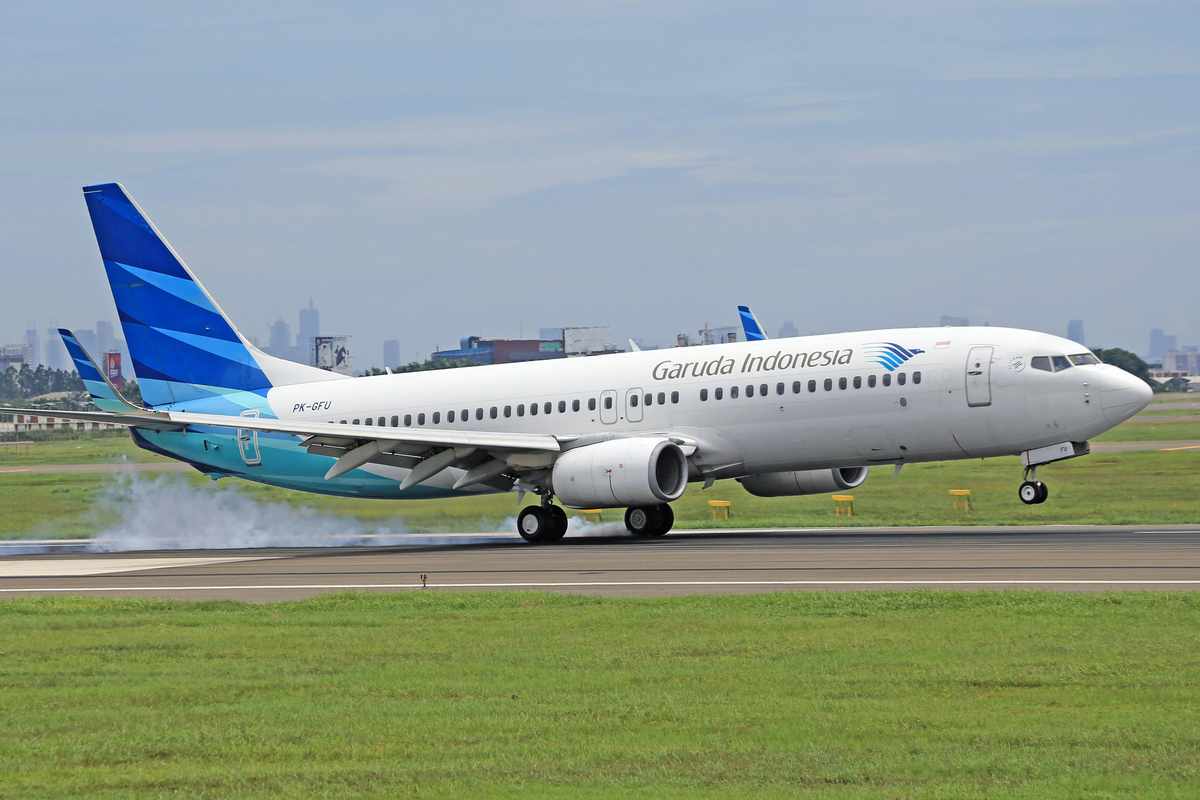(BAY COUNTY, FLORIDA) Florida’s top officials have spotlighted a fatal crash in Bay County that left three people dead as a turning point in a nationwide push to remove undocumented commercial drivers from America’s roads. Florida Attorney General James Uthmeier and Governor Ron DeSantis said an undocumented truck driver was arrested after the collision in August, with DeSantis faulting the employer that put him on the road.
“I blame the company. Putting this guy behind the wheel. What? You don’t interview people before you hire him and put him in there if like, they can’t speak English, like, that’s a problem to be able to understand your way around,” Governor DeSantis said, using the Bay County case to demand tighter rules on who can legally hold a commercial driver’s license.
The incident has become a focal point in a year of federal and state crackdowns that have led to the arrests of hundreds of undocumented drivers and new efforts to restrict access to commercial licenses.
The Bay County fatal crash has intensified scrutiny of how companies recruit and vet drivers, and how states issue non-domiciled commercial driver’s licenses, known as CDLs, to foreign nationals who lack permanent legal status. The case sits at the center of a broader enforcement wave that authorities say is aimed at public safety after a string of deadly wrecks tied to drivers who were in the United States unlawfully, lacked valid licensing, or could not legally work as commercial operators. Officials say the timing and geography of the incidents—from Florida’s Panhandle to the industrial corridor of northwest Indiana—underscore the scale of the problem and the gaps in screening that allow ineligible drivers to obtain or use CDLs.

In October, the Department of Homeland Security said 146 illegal immigrant truck drivers were arrested along highways in northwest Indiana during an enforcement surge dubbed “Operation Midway Blitz.” Among those cases, officials pointed to the October 15 crash involving Borko Stankovic on U.S. Highway 20. Stankovic, whose visa expired in 2011, was driving a semi using a suspended CDL that belonged to a family member when he caused a crash that killed 54-year-old Jeffrey Eberly, according to authorities. He was charged with felony reckless homicide and felony criminal recklessness resulting in death. The Indiana arrests followed late September detentions in Oklahoma, where Governor Kevin Stitt announced the arrest of 130 illegal immigrant commercial truck drivers as part of a multi-agency operation. The arrests in both states have been presented by officials as proof that illegal immigrant truck drivers pose a growing safety risk on major freight corridors.
Florida recorded another deadly wreck on August 12 in Fort Pierce, when Harjinder Singh, who crossed the U.S. border illegally in 2018 and later obtained a CDL in California, attempted an unauthorized U-turn, according to investigators. His trailer jackknifed and was hit by a minivan, killing all three people inside. Singh was charged with three counts of vehicular homicide. In Texas in March, an Ethiopian foreign national with limited English and prior violations caused a pile-up on I-35 north of Austin that killed five people and injured eleven more. Authorities said the driver had numerous hours-of-service and hazardous moving violations before the crash, citing the case as evidence that weak oversight and inadequate training standards can allow high-risk drivers behind the wheel of 80,000-pound vehicles on crowded interstates.
As the fatal crash in Bay County drove attention toward Florida, the federal government moved to restrict the pipeline of foreign commercial drivers. On August 22, 2025, Secretary of State Marco Rubio announced a pause on issuing new visas for foreign commercial truck drivers, saying the step was needed to protect the public and avoid undermining U.S. workers.
“[T]he increasing number of foreign drivers operating large tractor-trailer trucks on U.S. roads is endangering American lives and undercutting the livelihoods of American truckers,” Rubio said.
The State Department’s action targeted new issuances, while transportation agencies and state motor vehicle departments faced growing pressure to examine how non-domiciled CDLs are issued and monitored.
The Department of Transportation responded with an emergency interim final rule in late September that increases federal oversight of state practices for issuing non-domiciled CDLs. The rule aims to close gaps that officials and industry groups say have allowed ineligible or poorly trained drivers to gain access to U.S. roads through inconsistent state procedures. Enforcement agencies say recent cases show how drivers can exploit those gaps, including by using someone else’s license, concealing immigration status, or shifting across states to obtain paperwork that would not be issued elsewhere. States now face closer scrutiny over English proficiency checks, lawful status verification, and compliance with entry-level training standards when issuing or renewing commercial credentials for non-citizens.
On the legislative front, a Texas Republican moved to lock those changes into law. On October 3, 2025, Rep. Beth Van Duyne (R-TX-24) introduced the “Protecting America’s Roads Act,” which would embed the DOT’s tighter rules into statute. The bill requires CDL applicants to prove lawful status and domicile, mandates DHS SAVE verification for all non-citizen applicants, and limits non-citizen CDLs to the shorter of the expiration date on Form I-94 or one year. It also proposes penalties for states that fail to comply and would end recognition of foreign CDLs unless specifically authorized.
“It is time to end the danger posed by illegal immigrant and foreign national truck drivers who are not capable of safely operating an 18-wheel commercial vehicle or, in many cases, understanding English language warning signs and road instructions,” Van Duyne said.
The reference to Form I-94 (Arrival/Departure Record)—a U.S. entry record used to track lawful admission and authorized stays—links commercial licensing duration to a clear federal immigration document, a step supporters say would make it harder for people to continue driving after their legal authorization expires. For reference, the U.S. Customs and Border Protection maintains the I-94 (Arrival/Departure Record) page.
Industry leaders have warned that while the Bay County fatal crash and other incidents demand action, a broad clampdown on foreign drivers could deepen a longstanding labor shortage. The American Trucking Associations notes that around 3.5 million people work as truckers in the United States and that foreign-born drivers have become an essential part of the workforce. Approximately 18% of the United States’ 3.5 million truckers are foreign-born, and their numbers have doubled over the last 25 years amid declining compensation and protections that have made the job harder to fill with U.S.-born workers. ATA CEO Chris Spear said, “The issuance of non-domiciled (CDLs) needs serious scrutiny, including the enforcement of entry-level driver training standards.” The industry’s concern is that indiscriminate curbs on foreign nationals—rather than targeted enforcement against illegal immigrant truck drivers and companies that break the rules—could squeeze capacity, raise shipping costs, and slow supply chains.
Trucking company owners who welcome tighter policing say the problem is not only safety but a business model that, they argue, rewards corner-cutting. Zach Meiborg, owner of Meiborg Brothers Trucking, said some operators are using foreign-owned shell companies to hire drivers who are cheaper, more pliable, and less likely to report violations.
“We’re watching our bureaucrats export the most vital industry to our economy to foreign-owned entities, typically in the Eastern Bloc, formerly Russia. That’s why they have no problem hiring them…they did it by just flat out breaking the laws and our bureaucrats that regulate us looked the other way,” Meiborg said.
His comments reflect a belief among some domestic carriers that lax enforcement has let non-compliant firms underbid competitors by skirting hours-of-service limits, skimping on training, and relying on drivers who may lack legal status or proper credentials.
Law enforcement officials say the numbers from 2025 tell a story of widespread violations intersecting with deadly outcomes. In addition to the three deaths tied to the Bay County case, Florida authorities point to the Fort Pierce crash that killed three people and the Indiana wreck that killed 54-year-old Jeffrey Eberly. The Texas pile-up north of Austin killed five and injured eleven. In enforcement sweeps, 146 drivers were arrested in Indiana in October and 130 in Oklahoma in late September, with many cases focusing on fraudulent CDLs, expired immigration status, or outright lack of authorization to work in commercial driving. Authorities say these arrests often reveal networks: recruiters who place drivers quickly into jobs, trucking companies that fail to run proper checks, and intermediaries who help ineligible drivers obtain or forge documents.
The Bay County investigation has also driven debate over English proficiency on the job. Governor DeSantis’s remarks—
“I blame the company. Putting this guy behind the wheel. What? You don’t interview people before you hire him and put him in there if like, they can’t speak English, like, that’s a problem to be able to understand your way around”—
captured a larger policy argument about whether federal and state checks sufficiently enforce the English requirements already on the books for CDLs. Inspectors and safety advocates say a driver’s ability to read and respond to road warnings, crash scenes, and hazardous materials signs can mean the difference between a near miss and a mass-casualty event. For companies, the Bay County and Fort Pierce cases have become cautionary tales about hiring practices, supervision, and the legal risks of placing unqualified drivers in interstate commerce.
For families of the victims, the debate is painfully concrete. The Bay County fatal crash added three more names to a growing list of lives lost in 2025 in collisions involving ineligible drivers. In Indiana, authorities named Jeffrey Eberly, 54, as the man killed in the U.S. Highway 20 crash. In Texas, five families were left without loved ones after the I-35 pile-up, and eleven people were treated for injuries. Public safety officials argue that these cases underline why the federal government paused new foreign trucker visas and why the DOT moved with an emergency interim rule to tighten state oversight. The aim, they say, is not to target immigrants broadly but to stop Illegal immigrant truck drivers who operate without proper authorization or training from piloting heavy vehicles on busy roads.
Supporters of tighter rules say the new measures are designed to be highly specific. Under Rep. Van Duyne’s bill, non-citizen commercial licenses would be limited to the shorter of the expiration date on the holder’s Form I-94 or one year, and all non-citizen applicants would be checked through DHS’s verification system. States that fail to comply would face penalties, and foreign CDLs would no longer be recognized unless expressly authorized. Backers say these steps would reduce the chance that someone with an expired legal stay can continue to drive commercially by renewing a license in a lenient state. By anchoring license validity to federal immigration records and tightening training oversight, they argue the policy will cut the risk of another fatal crash like the one in Bay County.
Industry groups counter that a balance is needed. They say a broad-brush crackdown could sideline experienced, lawfully present foreign-born drivers at a time when the freight economy already struggles to find enough qualified operators. With about 18% of the workforce foreign-born, expulsions or visa freezes that go beyond Illegal immigrant truck drivers could ripple through warehouses, grocers, and factories. The ATA’s Chris Spear has called for stronger enforcement of entry-level training standards and closer scrutiny of non-domiciled CDLs while cautioning against steps that would worsen shortages. Shippers and carriers are watching closely to see whether the federal visa pause becomes a long-term policy and how aggressively states implement the DOT’s emergency rule.
For Bay County residents, the policy details matter less than the simple demand that what happened in August not happen again. The scene of the fatal crash has become part of a larger national argument about responsibility—of the employers that hire, the agencies that license, and the drivers who climb into the cab. In 2025, officials have moved faster than in past years: a visa pause on August 22, 2025, a DOT emergency rule in late September, and a bill introduced on October 3, 2025 to harden those changes into law. The next test will be enforcement. Arrests in Indiana and Oklahoma suggest that when authorities look, they find violations. Whether that translates into fewer funerals in places like Bay County will be the measure by which these policies are judged.
Across state lines, the language is growing sharper.
“It is time to end the danger posed by illegal immigrant and foreign national truck drivers who are not capable of safely operating an 18-wheel commercial vehicle or, in many cases, understanding English language warning signs and road instructions,” Rep. Van Duyne said.
“The issuance of non-domiciled (CDLs) needs serious scrutiny, including the enforcement of entry-level driver training standards,” added Chris Spear of the ATA. And from the carrier side of the ledger, Meiborg’s view remains blunt:
“We’re watching our bureaucrats export the most vital industry to our economy to foreign-owned entities…they did it by just flat out breaking the laws and our bureaucrats that regulate us looked the other way.”
For communities still grieving, and for Bay County where this year’s debate found its spark, the hope is that sharper oversight and clear lines on lawful status will keep trucks safe, hiring honest, and the roads free of another fatal crash.
This Article in a Nutshell
A Bay County crash that killed three people in August 2025 spurred scrutiny of undocumented commercial drivers and employer vetting. Florida leaders cited hiring lapses after the driver’s arrest. The federal government paused new visas for foreign truckers on August 22, 2025, and the DOT issued an emergency interim rule tightening oversight of non-domiciled CDLs. Congress introduced legislation to require lawful-status proof, DHS verification and shorter license durations. Industry groups warn broad curbs could worsen trucker shortages, while enforcement sweeps in Indiana and Oklahoma led to hundreds of arrests.













